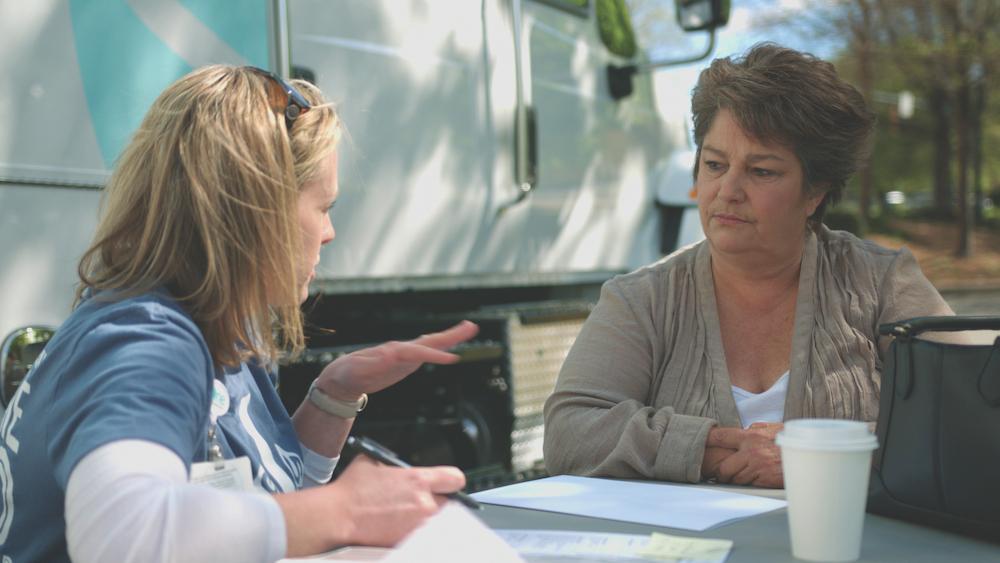Going the Extra Mile for Patients

For Darcy Doege, R.N., B.S.N., of the Levine Cancer Institute, finding cancer early in patients means hitting the road.
Darcy is the Program Coordinator for the Lung B.A.S.E.S. 4 Life Program for the Charlotte-based cancer center, which launched the first mobile lung screening unit in the U.S. in 2017. This innovative idea was built to increase the early detection of lung cancer for underserved populations across North and South Carolina, thanks to a grant from the Bristol-Myers Squibb Foundation
Darcy has seen firsthand how the mobile unit is driving change by bringing state-of-the-art cancer screenings to populations in need.
“When you’re able to connect with patients on their turf and in their community, they’re more willing to receive care,” Darcy says.
Historically known as the Tobacco Belt, North and South Carolina share some of the highest incidence and mortality rates from lung cancer nationwide. Lack of transportation to medical facilities, inability to secure the support resources necessary for adequate preventive care and poor understanding of risk factors block thousands of Americans from receiving necessary preventative care.
As part of her job, Darcy travels extensively with the unit from the mountains of Appalachia to the Atlantic beaches, meeting patients and interacting with medical staffs at clinics along the way.
The goals of the unit are to reduce the stigma of smoking, focus on screenings and early detection and ensure patient follow-up is the number one concern.
For many people who receive a screening in the mobile unit, this is their entry point into the healthcare system.
Patients are assessed and connected to resources in their community before the screening date. Once patients receive their screening, they are connected to smoking cessation resources and offered other free screenings through the Levine Cancer Institute.
Every patient is navigated closely by Darcy, who maintains contact every step of the way.
The mobile unit makes patients comfortable,” Darcy says. “When we enter a community, we ensure the mobile unit is parked where people are comfortable coming to or are already receiving care. This alone reduces barriers and diminishes fear. If something comes back positive on their scan, we plug them in for care immediately.”
Nursing was a natural fit for Darcy, who as early as high school knew she wanted to pursue a career that helped others. She began her nursing career as a medical-surgical nurse, followed by time spent serving patients in intensive care.
But being a nurse navigator has allowed her to make even more of an impact, she says.
Navigating patients comes very natural to me,” says Darcy. “There are so many gaps in care and lack of resources that cause patients to not seek care. I feel passionately about making sure those gaps are closed. If I don’t know the answer, I will figure it out.”
And the best part of the job?
“The patients we serve are so appreciative of the services we provide,” she says. “It’s amazing to think about the effect we have on the communities. We’re finding cancer early, educating the community and continuously coming up with innovative ways to educate patients on smoking cessation.”
Click here to learn more about Bristol-Myers Squibb’s commitment to corporate social responsibility and global citizenship.

